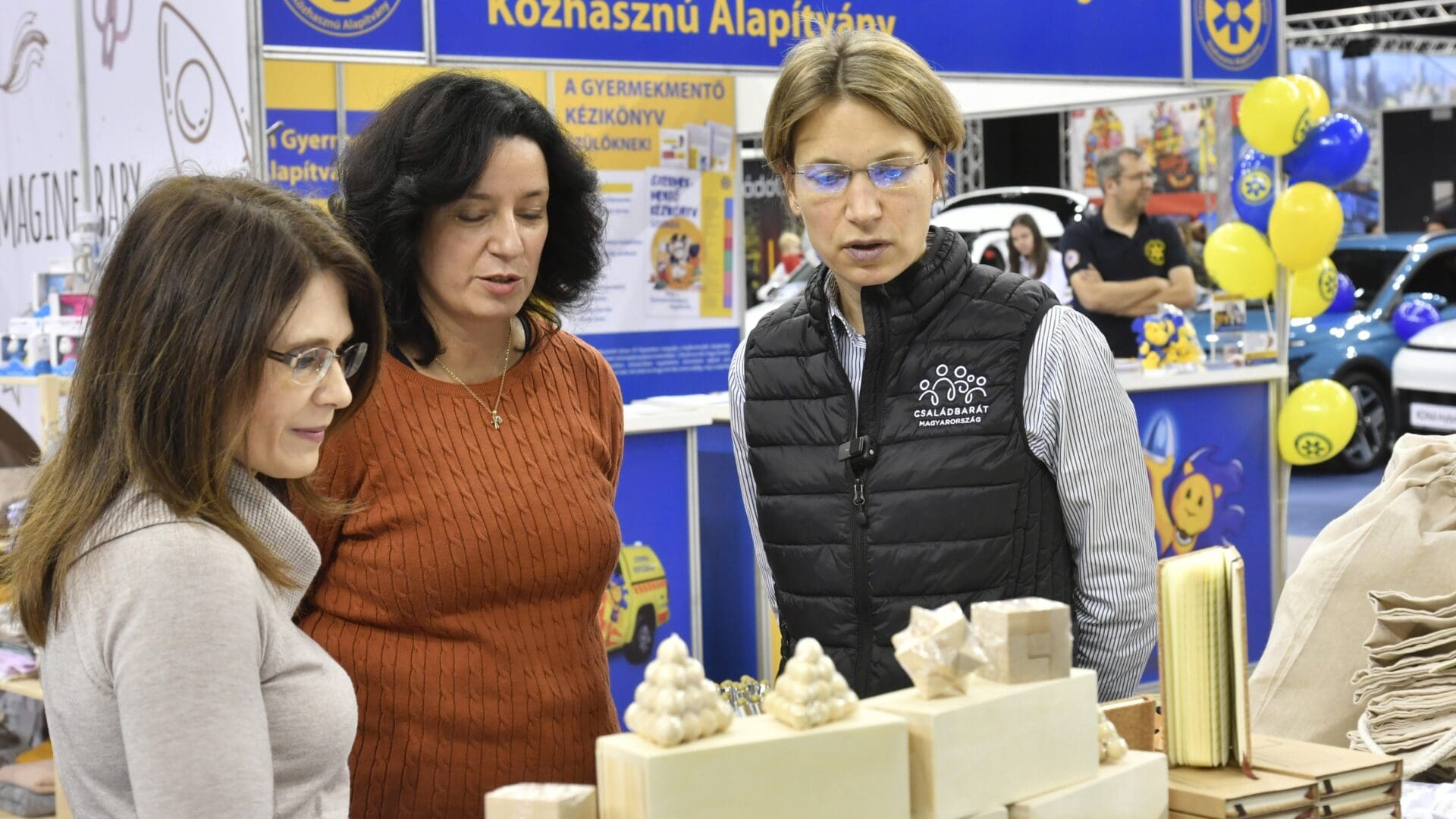The Cultural and Innovation Ministry’s State Secretary Responsible for Families revealed that the Hungarian family support system is soon to have another crucial pillar added, expanding to encompass physical, mental, and spiritual health care as well. This announcement was made during the Baby-Mama Expo in Budapest on Saturday, 25 November.
According to the information provided by State Secretary Ágnes Hornung,
this addition will bring the total number of main pillars supporting the Hungarian system to four, alongside home creation, financial security, and freedom of choice.
The secretary of state also mentioned that work is already underway on a package supporting this fourth pillar, expressing hope that this new measure will contribute to the continued growth of happy families in Hungary.
Speaking at a public lecture held at the joint exhibition stand of the Mária Kopp Institute (KINCS) and the Family-Friendly Country Centre, Ágnes Hornung stated that the introduction of this new measure is part of the continuous effort to fine-tune the Hungarian family policy by identifying renewal points within the system.
Recalling the government’s decision in 2010 to prioritize families, initiating a family-friendly turn that has persisted to this day, Hornung highlighted that over the past 13 years, more than 30 family policy measures have been implemented. Providing details on the measures introduced so far, Hornung explained that the Family Housing Support Programme (CSOK) underwent renewal in 2015. Depending on the number of current and planned children, families can now access a state-supported loan with a maximum interest rate of three per cent, ranging from 15 to 50 million forints.
Regarding the second pillar of financial security, Hornung emphasized that measures introduced since 2010, such as family tax benefits, childcare allowance, and one-time personal income tax refunds, have been the most significant. She underscored that in 2021 and 2022 alone, these measures left approximately 4 billion forints in family households.
The third pillar, providing freedom of choice, focuses on ensuring that having children does not disadvantage individuals in terms of education or career. Hornung highlighted the tripling of the number of available nurseries by municipalities, emphasizing the government’s commitment to facilitating the return of parents to their workforce while having a secure environment available for their children.
As for the soon-to-be-introduced fourth pillar, Hornung stressed the principle of ‘a sound mind in a sound body.’
The physical and mental well-being of parents is a prerequisite for raising happy children, therefore future efforts will place even greater emphasis on this pillar, she revealed.
President of KINCS Tünde Fűrész reported that the majority of families surveyed at the expo approve of and actively use the measures of the family support system. According to her, most families consider Hungary to be a family-friendly country, suitable for raising children—a sentiment supported by her organization’s studies. For instance, 90 per cent of parents with children under three years of age approve of family support measures.
CEO of the Family-Friendly Country Centre Ágnes Szuromi-Kovács pointed out that, as a background institution for the ministry, they provide various tools to help parents navigate parenthood. Their website offers parenting advice, a family support calculator, and information on the CSOK Plusz programme. The centre aims to support families who seek to balance parenting with their professions, she added.
Related articles:








